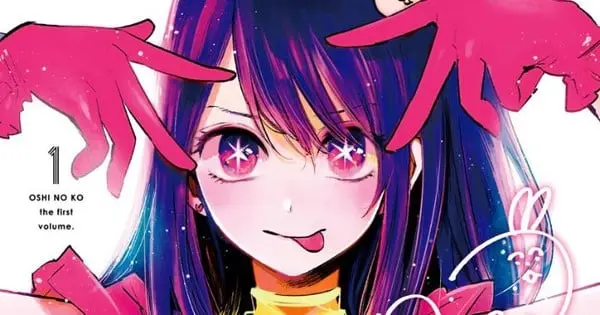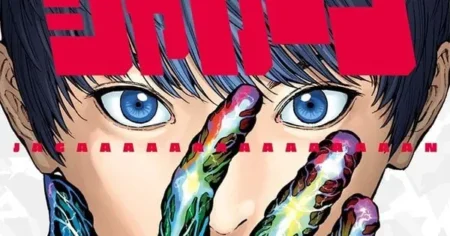Two compelling narratives, the popular manga series “Oshi no Ko” and an autobiography by acclaimed anime director Rintarō, have been nominated for the coveted Tezuka Osamu Cultural Prize. This prestigious award, named in honor of the “God of Manga,” Osamu Tezuka, recognizes works that embody his innovative spirit and contribute significantly to the manga and cultural landscape.
What is the Tezuka Osamu Cultural Prize?
Established in 1997 by the Asahi Shimbun newspaper, the Tezuka Osamu Cultural Prize celebrates manga that exemplifies Tezuka’s artistic legacy. The award aims to recognize and encourage the creation of manga that pushes creative boundaries and reflects the evolving trends in society.
“Oshi no Ko”: A Dark Dive into the Entertainment World
Written by Aka Akasaka and illustrated by Mengo Yokoyari, “Oshi no Ko” has captivated audiences with its unique storyline and compelling characters. The story follows Gorou, an OB-GYN, who is a huge fan of idol Ai Hoshino. After a tragic event, he is reincarnated as Ai’s child and enters the entertainment industry himself. The manga explores the dark side of the entertainment industry, including themes of reincarnation, identity, and the exploitation of talent.
Critical Acclaim and Popularity of “Oshi no Ko”
“Oshi no Ko” has garnered significant acclaim and popularity since its debut. Some key highlights include:
- Next Manga Award: Winner of the Next Manga Award in the print category in 2021.
- Kodansha Manga Award Nomination: Nominated for the 46th Kodansha Manga Award in the general category in 2022 and again for the 48th edition in 2024.
- Tezuka Osamu Cultural Prize Nomination: Nominated for the 26th Tezuka Osamu Cultural Prize in 2022 and the 28th edition in 2024.
- Japan Expo Awards Nomination: Nominated for Best Suspense Manga at the 2023 Japan Expo Awards.
- Manga Taisho Award Nomination: Nominated for the 14th Manga Taisho Award in 2021, placing fifth, and nominated again for the 15th edition in 2022, placing eighth.
- Anime Adaptation: Adapted into a hit anime series, further boosting its global recognition.
- Commercial Success: The manga has sold over 15 million copies, demonstrating its widespread appeal.
Rintarō’s Autobiography: A Lifetime in Animation
Alongside “Oshi no Ko”, the autobiography of Rintarō, a prominent figure in the anime industry, has also been nominated for the Tezuka Osamu Cultural Prize. Rintarō is known for his contributions to numerous influential anime works, including his directorial role in the film “Metropolis”. His autobiography offers insights into his career, the animation process, and the evolution of the anime industry.
Rintarō: A Veteran in the Anime Industry
Rintarō, born in 1941, is a veteran anime director with a career spanning several decades. His notable works include:
- Astro Boy: Early work as an animator on the iconic series.
- Space Pirate Captain Harlock: Director of the popular 1978 series.
- Galaxy Express 999: Director of the 1979 film adaptation.
- Harmagedon: Towards Eternity: Director of the 1983 film.
- Metropolis: Director of the critically acclaimed 2001 film based on Osamu Tezuka’s manga.
The Selection Process
The nominees for the Tezuka Osamu Cultural Prize are selected by a committee of judges who are experts in the manga industry. The committee considers various factors, including originality, artistic merit, and cultural impact.
Judging Committee
The judging committee typically consists of manga artists, writers, critics, and cultural figures. Their diverse backgrounds ensure a comprehensive evaluation of the nominated works. Past judges have included:
- Osamu Akimoto: Manga creator known for “Kochikame”.
- Machiko Satonaka: Manga creator known for “Machiko’s One Thousand and One Nights”.
- Minami Takahashi: Entertainer.
- Yukiko Tomiyama: Writer and instructor at Tohoku University of Art and Design.
- Shohei Chujo: Professor and scholar.
- Nobunaga Minami: Manga critic.
- Taro Yabe: Comedian and manga creator.
Previous Winners of the Tezuka Osamu Cultural Prize
The Tezuka Osamu Cultural Prize has a history of recognizing outstanding manga works. Some notable past winners include:
- 2023 Manga Grand Prix: Yuria-sensei no Akai Ito by Kiwa Irie
- 2023 Originality Prize: Gump’s Danchotei Nichijo, an autobiographical manga on the author’s battle with cancer
- 2023 The Asahi Special Prize: Kazuo Umezu
- 2023 Short Story Prize: Onnanoko ga iru Basho wa by Ebine Yamaji
Impact on the Manga Industry
The Tezuka Osamu Cultural Prize plays a vital role in promoting and celebrating the art of manga. By recognizing exceptional works, the award encourages creativity and innovation within the industry. The nominations and awards often bring increased attention to both established and emerging manga artists, boosting their careers and expanding their readership.
Other Nominees
While “Oshi no Ko” and Rintarō’s autobiography are generating significant buzz, the complete list of nominees for the Tezuka Osamu Cultural Prize often includes a diverse range of manga, reflecting the breadth and depth of the medium. The other nominees are expected to be announced soon.
Significance of the Nominations
The nominations of “Oshi no Ko” and Rintarō’s autobiography highlight the diverse range of stories being told through manga. “Oshi no Ko” explores contemporary themes with a fresh perspective, while Rintarō’s autobiography offers a historical lens on the development of anime. Both nominations underscore the cultural significance of manga and its ability to connect with audiences on multiple levels.
Award Ceremony
The winners of the Tezuka Osamu Cultural Prize will be announced at an award ceremony held by the Asahi Shimbun. The winners of the Manga Grand Prix will be awarded with 2 million yen ($14,600), whereas Originality, Short Story and Asahi Special Prize winners will be given 1 million yen each. All the winners will be awarded with a bronze statue.
A Celebration of Manga
The Tezuka Osamu Cultural Prize serves as a reminder of the enduring legacy of Osamu Tezuka and the continued vitality of the manga industry. The nominations of “Oshi no Ko” and Rintarō’s autobiography are a testament to the power of manga to entertain, inspire, and reflect the complexities of the human experience. The manga continues to evolve, embracing new voices and perspectives while honoring its rich history.









